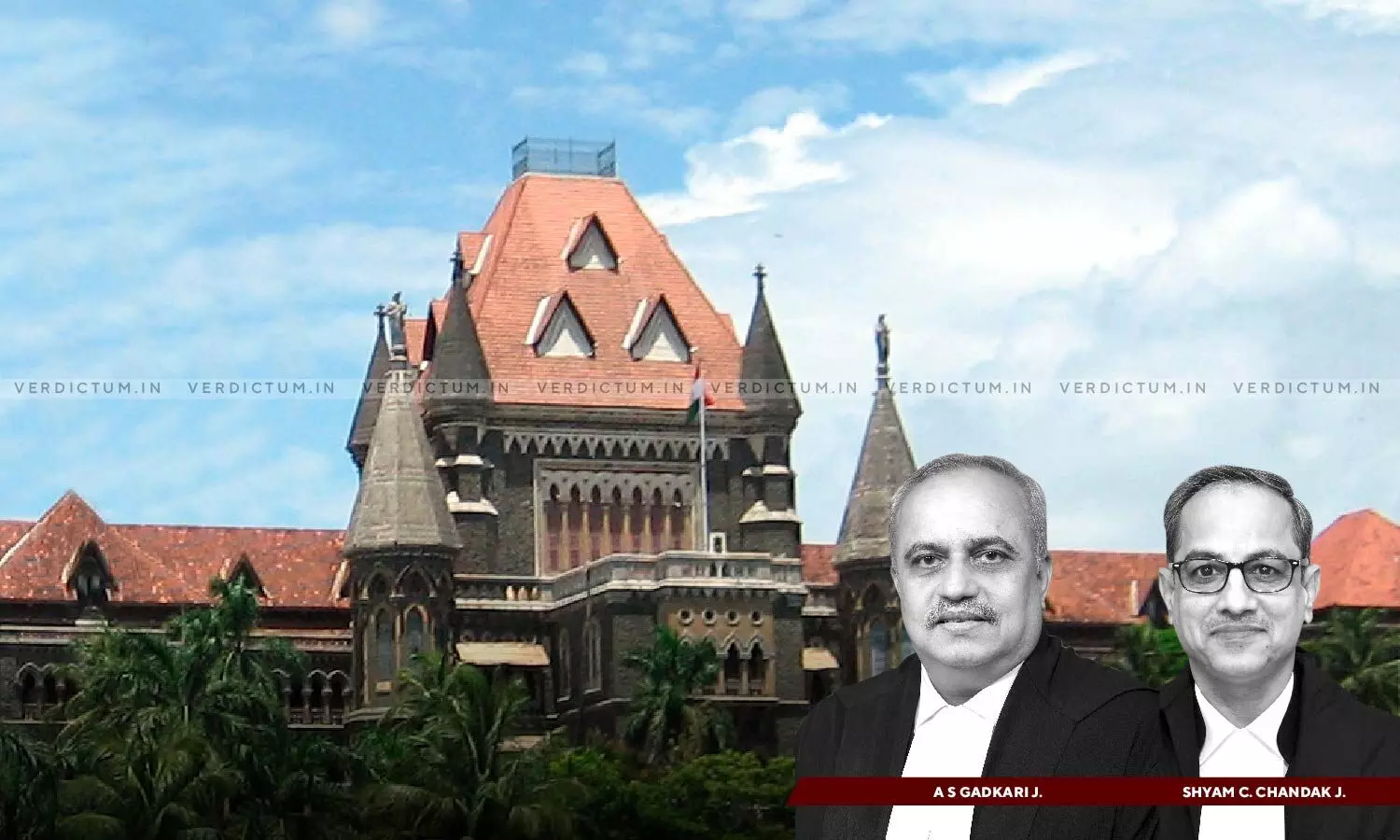
“We Are Regularly Coming Across With The Breach Of Section 172 (1-B) CrPC.”: Bombay HC Directs DGP To Look Into Matter Personally
 |
|The Bombay High Court has directed the Director General of Police, Maharashtra State to look into the matter personally relating to the breach of Section 172 (1-B) of the Criminal Procedure Code (CrPC) by the police officers.
Section 172 of CrPC states about the diary of proceedings in an investigation. As per sub-section (1), every police officer making an investigation, shall day by day enter his proceedings in the investigation in a diary, setting forth the time at which the information reached him, the time at which he began and closed his investigation, the place or places visited by him, and statement of the circumstances ascertained through his investigation. And as per Section 172 (1-B), the diary referred to in sub-section (1) shall be a volume and duly paginated.
The Court was dealing with a criminal writ petition which involved the case in which the police had apprehended some persons and they were released on bail by the Trial Court.
A Division Bench comprising Justice A.S. Gadkari and Justice Shyam C. Chandak observed and directed, “According to us, this is a serious matter of concern. The Investigating Officer Shri Sajjan Landge has not only shown disrespect but has flouted the Orders/Directions issued by the Office of the Director General of Police. We therefore direct the Director General of Police, Maharashtra State to look into the matter personally and adopt necessary legal action against the said Police Officer. … We are at pains to issue such direction in view of the fact that, we are regularly coming across with the breach of Section 172 (1-B) of Cr.P.C. and the directions issued by the Office of the Director General of Police.”
Advocate Jitendra Tiwari represented the petitioner while APP A.A. Takalkar represented the State.
In this case, the Court noted that the dispute and differences between the parties can be resolved amicably through the process of mediation and with the able assistance of Advocates appearing for the respective parties. The Advocates for the respective parties submitted that, they will hold a meeting to discuss the issues for amicable settlement in presence of their clients and will make an endeavour to resolve the issues involved in the petition and allied litigation, if any, between the said parties. The Court welcomed their good gesture.
During the arguments, Advocate for the respondents submitted that, for an offence wherein the punishment is not more than seven years, the Investigating Officer arrested the respondents without issuing a notice under Section 41-A of Cr.P.C., which is the mandate of law. Therefore, the Court called upon the Investigating Officer to produce the record of investigation for its perusal. The said record indicated that the notice as contemplated under Section 41-A of CrPC was not served upon the respondents who were accused.
The High Court in the above regard observed, “… as the notice under Section 41-A of Cr.P.C. could not be served upon the accused persons, the same was served upon Smt. Anu Harish Khanna i.e. the mother of accused Tejas Harish Khanna at Amrutsar, Punjab. We are unable to accept such a novel idea of service of notice adopted by the Investigating Officer.”
The Court said that this is not in consonance with the law laid down by the Supreme Court in the case of Arnesh Kumar v. State of Bihar & Anr. (2014) 8 SCC 273. It added that the law does not recognize service of notice under Section 41-A of CrPC upon somebody else instead of accused persons and this is clear breach of Section 41-A by the concerned Officer and requires serious attention by the highest Authority of the Police Department i.e., DGP.
“… Perusal of record of investigation clearly indicates that, Case Diary of the present crime, is maintained in utter defiance of Section 172(1-B) of Cr.P.C. The Case Diary is maintained, not only in the form of loose sheets but those are scattered throughout the file. … As per the record of this Court, after noticing such a breach of Section 172 (1-B) of Cr.P.C. various Orders have been passed by this Court from time to time since the year 2011 till 2018. In furtherance of those judicial Orders, the Office of the Director General of Police, Maharashtra State has issued Circulars from time to time i.e. 11th February 2011 till at least 6th December 2018”, it further noted.
The Court added that the directions issued by the DGP have not been percolated to the lower rank of the Police Officers, who are conducting investigations at ground level and the said Circulars have found its place in the files of the concerned Police Stations.
The Court, therefore, directed the DGP to not delegate its powers to any subordinate officer while looking into the matter and said that its directions be not taken lightly or casually.
Accordingly, the High Court granted four weeks’ time to DGP and listed the matter on February 13, 2024.
Cause Title- Faruk Kabir v. The State of Maharashtra & Ors.
Appearance:
Petitioner: Advocate Kunickaa Sadanand
Respondents: Advocates Padma Shelatkar and Namit Singh Mehta.